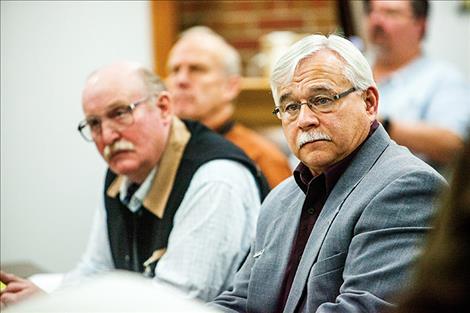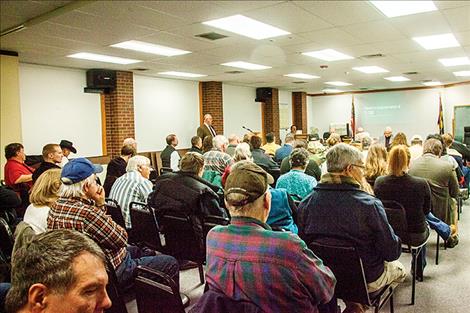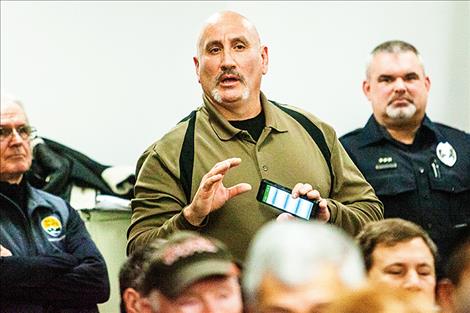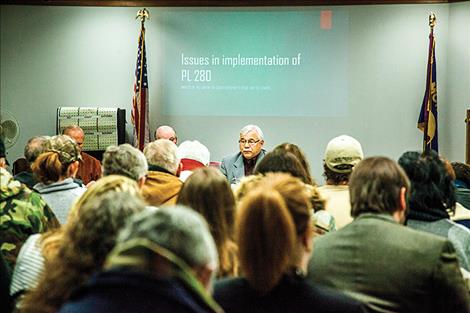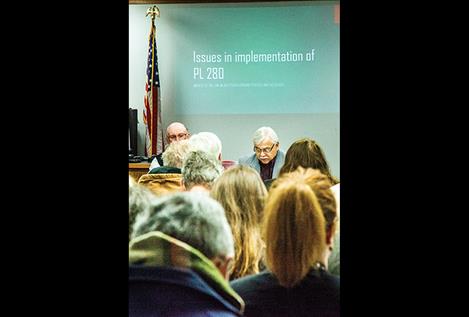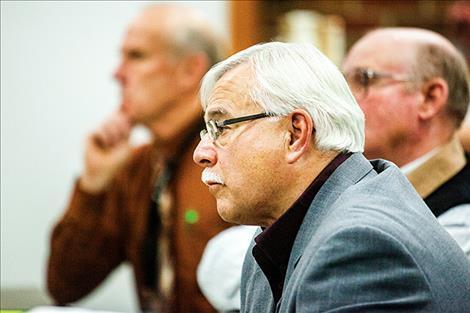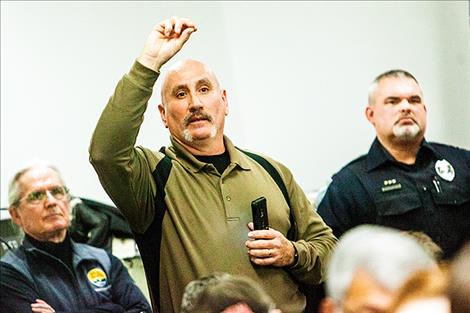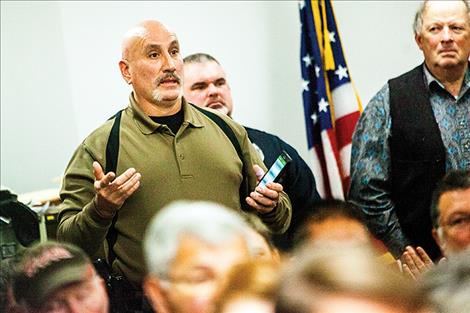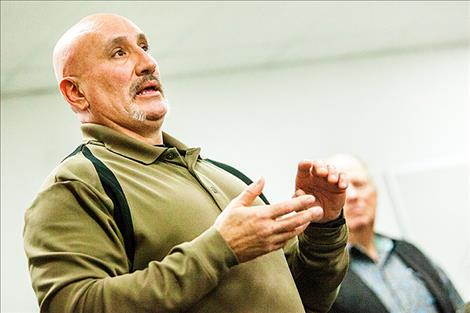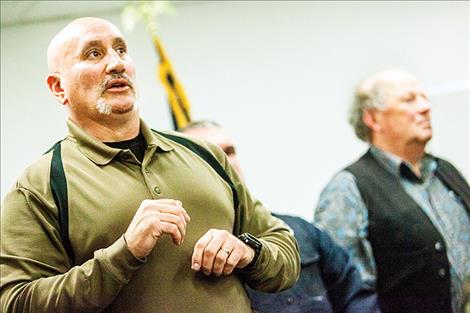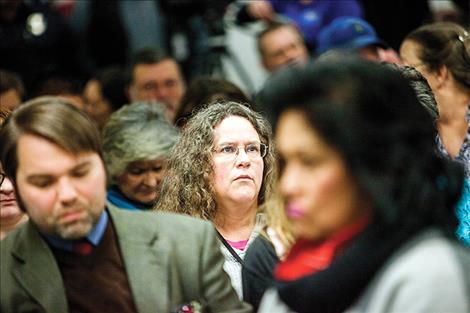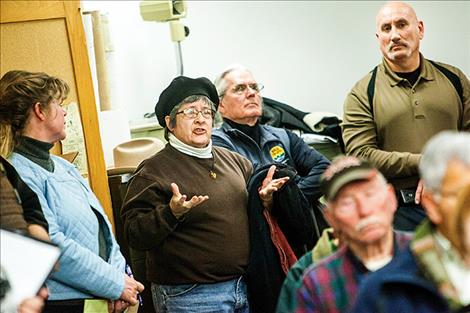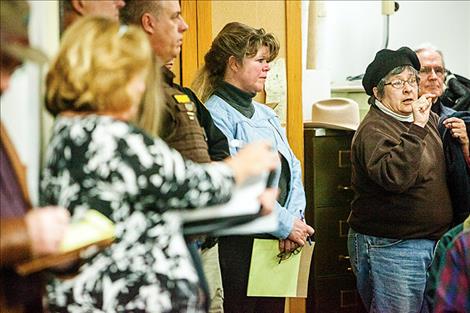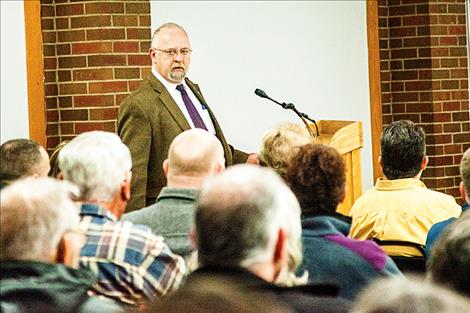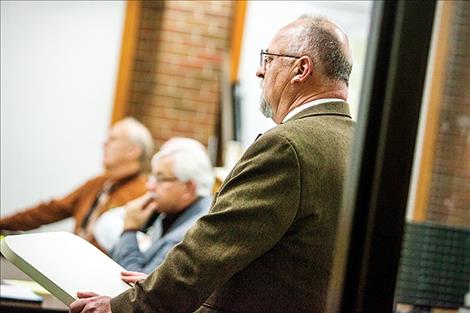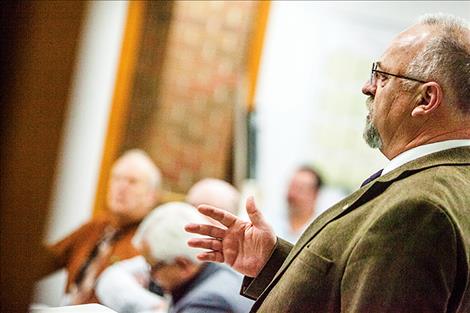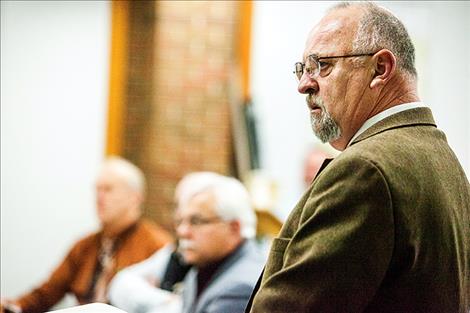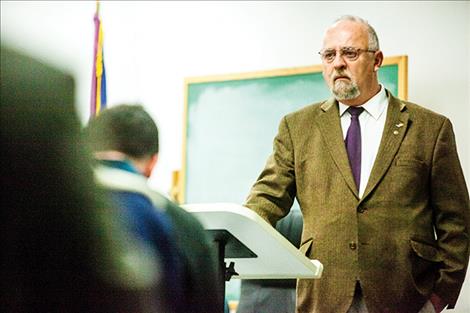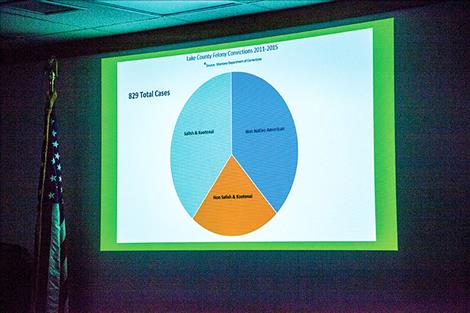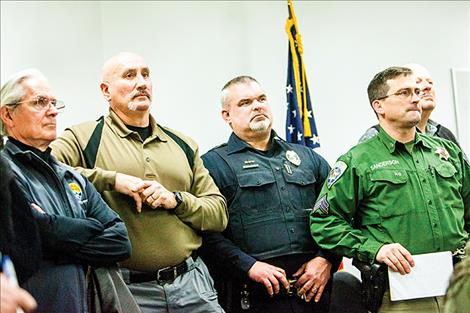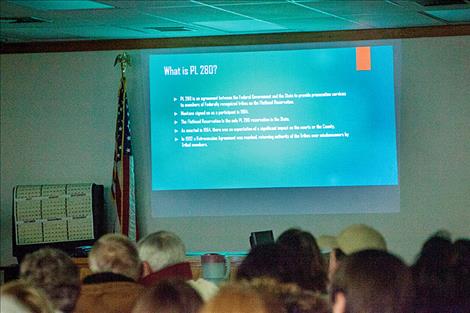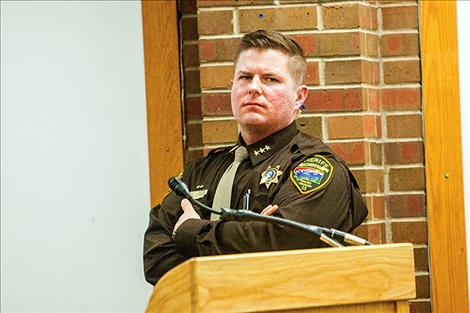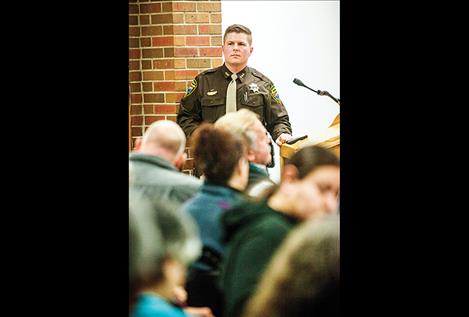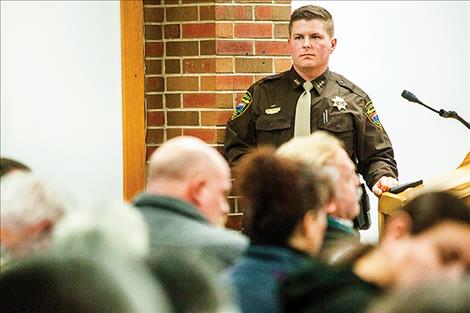Commissioners vote to withdraw from Public Law 280
Move not supported by many, would result in FBI prosecuting tribal felony cases
Hey savvy news reader! Thanks for choosing local.
You are now reading
1 of 3 free articles.
POLSON – Bringing the federal and state governments to the table is the goal behind the Lake County commissioners’ 3-0 vote to withdraw from Public Law 280.
The vote took place on Wednesday, Jan. 11, after a lengthy public hearing in the Lake County courthouse.
Although numerous issues were discussed by those in attendance, the commissioners and County Attorney Steve Eschenbacher stressed that the move is mainly about a lack of funding. Two members of the audience said the county is losing $1.2 million in property tax revenue a year due to the Confederated Salish and Kootenai Tribes taking over the Seliš Ksanka Qĺispe (formerly Kerr) Dam in September 2015. However, Eschenbacher previously said the county was slated to lose $800,000 a year.
The county last year filed a lawsuit against the Montana Department of Revenue in an attempt to force them to issue a property tax bill to CSKT for the dam.
At the beginning of last week’s meeting, Commissioner Bill Barron said that Public Law 280 is federal law that the U.S., Montana and CSKT entered into in 1964. He noted that Montana is a voluntary participation state, and not all are.
“The county doesn’t have the economic resources to continue in Public Law 280 without significantly impacting taxpayers,” he said. “There’s no question what we have now is good. It boils down to what we can afford.”
Eschenbacher noted that the Flathead Reservation is the only Public Law 280 reservation in the state.
He said the county has seen a tremendous increase in felony cases the past two years driven by methamphetamine use.
He compared Lake and Ravalli counties and said that even though Ravalli has 42,000 residents and Lake has 29,000, Lake has “more than double the felony cases for a population that’s one-third smaller.”
Eschenbacher noted the Lake County Jail is over capacity and that half of the inmates are tribal members. In addition, 67 percent of pre-sentence investigations are for tribal members, he said. Last month, he said that tribal members make up 83 percent of felony cases handled by the county.
He explained the reason that there are fewer tribal members in jail than are prosecuted. “Tribal members generally don’t run. They’re tied to the land and the family,” he said.
Eight of the last nine homicides in Lake County have been by a tribal member against a tribal member, he said. However, when questioned later by CSKT Police Chief Craige Couture, Eschenbacher noted that there have only been two over the past two years and only one was by a tribal member.
One-third to one-half of those in the jail are being incarcerated for the Department of Corrections because the DOC doesn’t have enough room for them, he said. The DOC pays $69 a day per inmate, but it costs the county $111 a day to house them.
Eschenbacher noted the county will soon have to hire a Marcy’s Law compliance officer. Marcy’s Law is a victim’s rights law recently approved by the voters. It will go into effect July 1 and will require victims to be notified in case of a defendant’s bond reduction hearing, for example.
Should the county effectively withdraw from Public Law 280 (which it can’t do unilaterally), the Federal Bureau of Investigation would take over felony cases involving tribal members. (CSKT has handled misdemeanor cases since 1992.)
“If someone steals a truck, the FBI probably won’t investigate because they’re too busy,” he said. “It will be different.”
During public comment, local attorney and former FBI agent Ted Chester said he served in the latter role 20 years, five in Glacier County on the Blackfeet Reservation.
“Eighty percent of the time, I was the only agent who worked that area,” Chester said.
He noted that the FBI response times would not be the same as they are now with the county sheriff and tribal police. The Flathead Reservation would be handled by the FBI office in Missoula, he said.
Jim Taylor, legal director of the American Civil Liberties Union in Montana, said Lake County doesn’t have a tribal member problem; rather, it has a drug problem.
Taylor said the state Legislature would have to pass a bill or Gov. Steve Bullock would have to issue a proclamation for the county to effectively withdraw from Public Law 280. And the federal government would also have to agree.
County Probation and Parole Officer Lori Thibodeau said that the federal government prosecuting felony cases of tribal members isn’t the answer, but if the commissioners’ resolution brings them to the table, then it’s good. She was hopeful that U.S. Rep. Ryan Zinke would be able to make a difference. (Zinke has been nominated for secretary of the interior by President-elect Donald J. Trump.)
Undersheriff Ben Woods said that Sheriff Don Bell doesn’t support withdrawal from Public Law 280.
“The unintended consequences of getting rid of this agreement are untold,” Woods said. “It will drastically affect our public safety. We don’t have it that bad. We need to stick with what we’ve got.”
With Public Law 280, tribal members would be imprisoned out of state and would face minimum mandatory sentencing as opposed to the equitable sentencing they have now. Woods said there are less civil rights in the U.S. Constitution than exist in the Montana Constitution, and tribal members would be affected by this.
Withdrawing from Public Law 280 is not a solution for the jail because the backlog of warrants would still be there, he said. Woods said there are some 1,600 active felony warrants because the jail is full. Counting misdemeanors and felonies, Eschenbacher said there are 7,000 active warrants.
Woods said the jail is so overcrowded that defendants can’t be guaranteed a confidential meeting with an attorney because someone could be listening. In addition, no religious services are conducted in the jail.
Couture also does not support withdrawal.
“If Public Law 280 is done away with, homicides, rapes and drug problems will fall through the cracks,” he said.
“The overarching issue is property tax revenue is being placed in (tribal) trust,” Commissioner Gayle Decker said. “We’re now at the tipping point where we have to find ways to save money. We’ve been putting it off for years and years and years, and we can’t put it off any longer.”
The commissioners were asked if they had reached out to the federal government and the state. Commissioner Dave Stipe replied, “Passing a resolution will bring them to the table. Nobody comes to the table unless we do this. There’s been a never-ending attempt to get other governments to pay a share, and they just won’t because of Public Law 280.”















